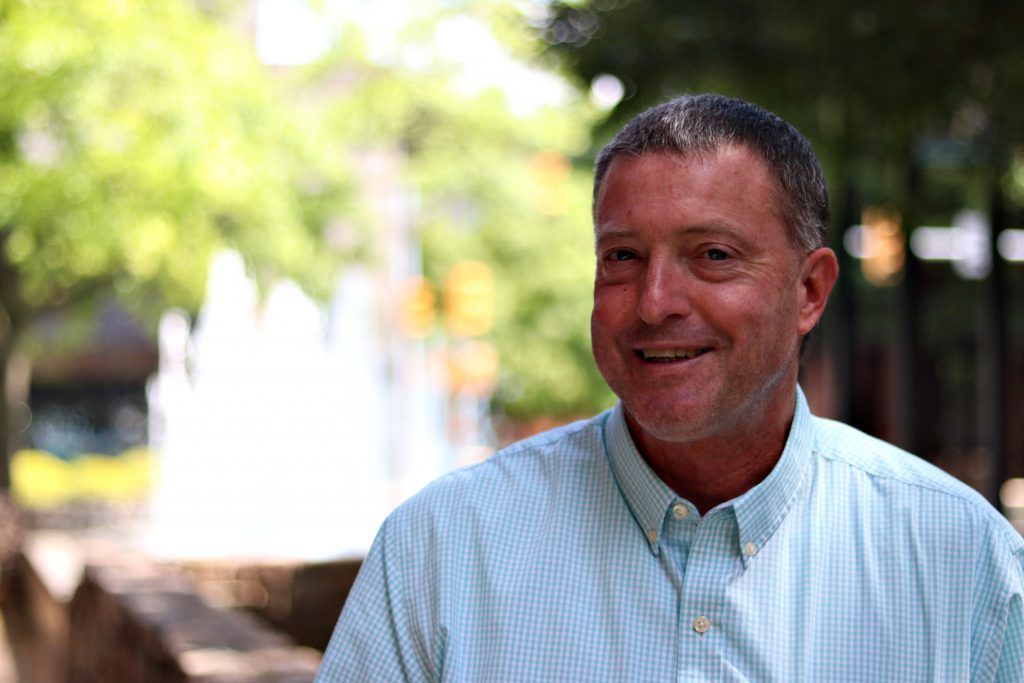
At times a bold and intimidating presence, Ed Robbins has a “heart for children.” After more than 30 years in Lycoming County’s Juvenile Probation Office, Robbins has seen kids grow up in the justice system and move on to successful careers and steady relationships.
He sees them again after a few years and they are eager to tell him how much they have grown and accomplished. Every story is not so positive, but Robbins knows he and his office have worked hard to be a positive influence in these children’s lives.
“What folks need to know about (working) in our system is that you have to care. You have to want to make a difference,” Robbins said.
On July 10, Robbins will put the final punctuation on his 34-year-long career with the Lycoming County justice system. Over three decades, he has worked tirelessly to improve how his department handles the discipline and betterment of the county’s most troubled and vulnerable youth.
“I’m gonna look back and just be really happy, thankful and proud of what we’ve accomplished,” Robbins said. “The collaboration, the job that we’ve done — That’ll never change, because I’m really proud of what we built.”
While Robbins has served as chief of juvenile probation since 1998, he took his first role with the department as an intern while studying at Mansfield University, Though he had already taken some law enforcement classes, he didn’t find his true calling until taking a course called probation and parole as an upperclassman. The class, which examined the intricacies of juvenile delinquency, inspired Robbins to strive to prevent other kids from making similar or worse mistakes than he had as a teen.
Though his position as chief involved more of an administrative focus, overseeing budget and staffing issues that would affect the rest of the office, Robbins still occasionally worked with juveniles and their families directly in what he called informal hearings. The penance typically involved community service, paying a small fine or writing an essay. At this level, Robbins would have a conversation with the child, giving him or her a stern but fair warning to change their behavior, and send them on their way.
If a formal allegation was made, Robbins and his office would come up with a plan for the youth that involved a trifold combination of community protection, accountability and skill building. They would make a recommendation in the youth’s best interest, which would ultimately be decided upon by a judge or family court officer, and supervise them for an average of six to nine months.
Matt Minnier, Robbin’s deputy and second-in-command juvenile probation officer, urges the community not to be thrown by the chief’s bold presence.
“(Ed’s) got a big heart for kids,” Minnier said. “Everything he’s done through this office, in the community, has been done with the best of intentions to help kids grow and develop. . . He’s just willing to do a lot of things other people aren’t, to put himself out there to help.”
Part of helping meant being willing to roll with significant changes to the juvenile judicial system. Judge Richard Gray, who served as Lycoming County’s juvenile lead judge from 2009 to 2018, recalls that Robbins was in favor of new state initiatives to place a higher focus on case planning and evidence-based programming and that he played a key role in securing those mandates.
“He pushed us ahead of many of the larger counties. . .” Gray said. “He was very good (about) the case-planning idea and made all the new state mandates stick. A lot of counties — particularly smaller counties — just did things the way they always did. (Ed) was always on top of the curve.”
As Robbins prepares to embark on his next journey — transitioning from a part-time to full-time professor at Lycoming College in January 2021 — he carefully considers the factors that have made his time as chief juvenile probation officer so rewarding. His answer always comes back to the kids — specifically, how they’ve changed their lives for the better after working with his office.
“There are instances where… a young person I either supervised or knew me from the office, says, ‘Hey Mr. Robbins, how’re you doing?’. . .Usually I know when they came in roughly, and I’ll ask them how they’re doing. More times than not, (they’ll say), ‘I’m working, I’m married, I’m not in trouble, I’m doing good.’ . . .To know that we had a positive impact on a young person is exactly why I took this job in the first place.”
To his future students hoping to have a career in law enforcement, Robbins emphasizes that the most important part of the job is caring about the person sitting on the other side of the table.
“Most of all, you have to care about the person sitting across from you, who’s struggling with something,” Robbins said. “No matter who they are. . . If you don’t care, you’re going to be a terrible JPO.”




